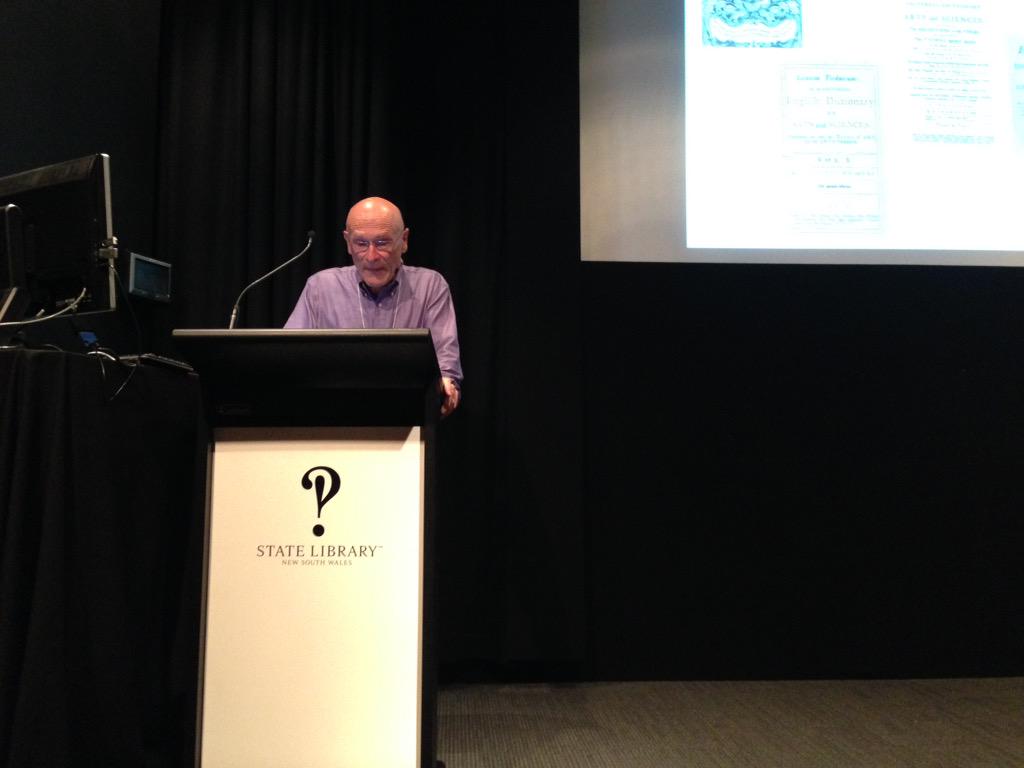Search This Blog
Wednesday, 24 December 2014
Wednesday, 10 December 2014
INKE Sydney gathering
Research Foundations for Understanding Books and Reading in the Digital Age: E-merging Reading, Writing, and Research Practices
An INKE-hosted Birds-of-a-Feather Gathering
8 December 2014, State Library of New South Wales
By Suzana Sukovic
A Birds-of-a-Father Gathering hosted by the Canadian group INKE (Implementing New Knowledge Environments) turned out to be a beginning of the festive season for me. Really. This seminar was a summer rain for my brain parched by the heat of end-term rush, administrative duties and noise of building works. It had all the elements of great gatherings – good organisation, nice people with fresh ideas, thoughtful insights and shared interests, lots of time for discussion and pleasant surroundings.
The organisation of the gathering required a great deal of preparation to create time for discussions during the day. After a selection of abstracts, authors were asked to write long papers, which were collated into a nearly 300 page long document and shared with participants. During the seminar, each paper was allocated 10 minutes – strictly 4 minutes for a presentation and the remainder for questions and discussions. Keynote addresses had a more generous time allocation, still with ample time for discussions. In this blog post, I will share some of the ideas presented during the day, keenly aware that a brief overview can’t do justice to the richness of arguments and conversations.
Reading Technologies, Digital Production, & the Social was the title of the first session. John Maxwell (Simon Fraser U) argued that the WWW is the publishing paradigm of our time. He promoted the possibility of hacking scholarly work by adding value to it (for example, adding index to a publicly available work). Tully Barnett (Flinders U) discussed young people's social reading enabled by the Kindle social highlighting feature. Transliterate reading was my paper in which I considered how scholars, community members and teenagers search, read and create in a transliterate manner. I will present my 4 minute argument on the LARK blog shortly.
Session 2: Collaboration: Tools, Platforms, & Examples was marked by discussions about engagement with users and readers. Jon Bath (U Saskatchewan) presented a multi-authored paper describing an experiment to employ a plug-in for the Zotero bibliographic management system in collaborative projects. The users’ reluctance to try the software during the experiment prompted us all to reflect on the values of sharing negative research experiences. On behalf of his group, Bill Bowen (U Toronto) discussed his experiences with the Iter community, pointing out that ‘build it and they will come’ often doesn't work. Ellen Forsyth talked about the efforts of an international group of librarians to engage readers in online discussions on blog and Twitter. Ray Siemens (U Victoria; INKE) presented his team’s work on setting up an environment for collaboration in consultation with scholars in the humanities. He pointed out a quiet, but fast shift towards collaborative digital tools and behaviours, and need for an inclusive environment for an academic and ‘citizen scholar’. Daniel Powell (King’s College London) and Lynne Siemens (U Victoria, INKE) discussed approaches to collaboration from a historical and organisational perspective. Powell argued that culture and knowledge production have always been collaborative while Siemens shared her experiences with establishing conditions for collaboration and emphasised the importance of establishing a common understanding among collaborators before the project commences.
Jennifer Roberts Smith (U Waterloo) opened Session 3: Analysis & Experimentation challenging the audience to think about power and ‘book as the monument’ as a context for experimentation. Stan Ruecker ((Illinois Institute of Technology, INKE) described his team’s thinking about the development of several interfaces for the same programming background while Jon Saklofske (U Acadia, INKE) considered modularity and narrativity in the development of New Radial. Claire Timpany (U Waikaito) presented results of her doctoral research into users’ perceptions of visual markers of headings online. Images of strong men and infatuated women illustrated Jack Elliott’s (U Newcastle) talk about analysis of romance as a genre.
Session 4: Multimodal Knowledge Environments & Communities included a stimulating discussion about a range of topics. Jason Ensor (U Western Sydney) presented his and Belinda Barnet’s (Swinburne U of Technology) paper on experiments with post-print, bi-directional linking based on Ted Nelson’s Project Xanadu. They used Barnet’s work to showcase Nelson’s approach to establishing textual connections. The next two papers addressed issues of representing Indigenous Australian culture. Michael Walsh (Australian Institute of Aboriginal and Torres Strait Islander Studies) discussed challenges of cultural transfer when Aboriginal stories and songs are presented for a Western audience. It was interesting to hear that contemporary Indigenous musicians use Walsh’s old tape recordings as a basis of composition on synthesisers. Hart Cohen and Rachel Morley (U Western Sydney) presented their work on linking archival records and media to relevant passages of Strehlow’s book Journey to Horseshoe Bend. Finally, Brent Nelson (INKE) discussed museum as a knowledge environment and the implications for digital presentations.
The closing keynote address From Storythinking to Storymaking: Reimagining Narrative in the Academy by Sydney Shep (Victoria U of Wellington) invited the audience to consider the line between creative and analytical in the academy. Her reading of tweets from the #INKESydney14 was a masterful display of weaving analytical and performative in an academic discourse.
Conversations continued later in the evening over dinner with frequent references to analogue rain and a digital flow across the globe. Thanks, INKE, for freshly watered ideas.
See Twitter feed https://storify.com/suzanasukovic/inkesydney14.html OR https://storify.com/suzanasukovic/inkesydney14.pdf
Subscribe to:
Posts (Atom)







